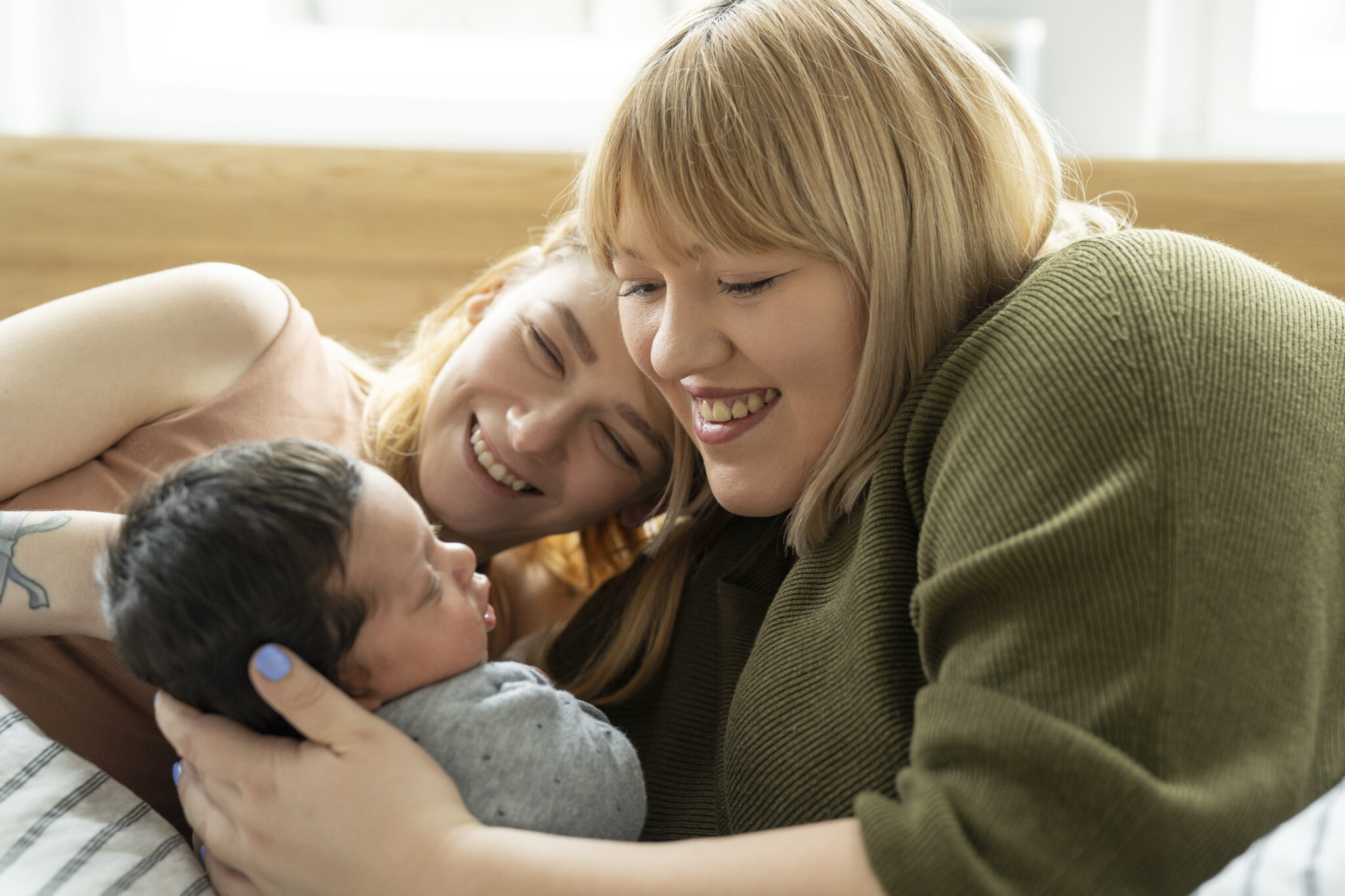Fertility expert warns on inequalities in lesbian IVF funding which are ‘overlooked for far too long’
Sign up for more LGBTQ+ news and updates at TrueQueer.
Lesbian IVF Funding Inequalities: An Overlooked Issue in the UK
This Lesbian Visibility Week, fertility expert Claire Innes is shedding light on the disparities in IVF funding for lesbian couples in the UK. Innes, the founder of The Fertility Mentor, has raised concerns about the lack of equal access to IVF treatment for lesbians, calling it a regrettable reality that has been overlooked for far too long.
While LGBTQ+ couples have the option to pursue various paths to parenthood, including donor insemination, surrogacy, and adoption, accessing IVF treatment through the NHS can sometimes be a challenge for women in same-sex relationships. Eligibility for NHS-funded IVF depends on factors such as age and local Integrated Care Board (ICB) requirements, which can vary widely across different regions.
One of the key issues highlighted by Innes is the requirement for lesbian couples to undergo self-funded treatments like Intrauterine Insemination (IUI) before being considered for NHS-funded IVF. This can pose a financial burden on same-sex couples, who may have to spend hundreds or thousands of pounds on private treatments before being eligible for NHS support.
In a recent case reported in March, a lesbian couple claimed they were denied an NHS referral for IVF unless they could provide evidence that they had been trying to conceive for two years. This requirement is not imposed on heterosexual couples seeking fertility treatments, highlighting the unequal barriers faced by LGBTQ+ individuals in accessing reproductive healthcare.
Innes has also pointed out the lack of consistency in IVF funding across different regions in the UK. She noted that only a small number of ICBs offer funding to lesbian couples without requiring them to first undergo self-funded treatments, a practice commonly referred to as the “gay tax.” This disparity was further underscored by data from the Human Fertilisation and Embryology Authority (HFEA), which found that only 14% of patients in female same-sex relationships were funded by the NHS for IVF treatment, compared to 39% of heterosexual couples.
The issue of IVF funding inequalities for lesbian couples is not just a matter of fairness and equality; it also reflects deeper systemic biases within society. Innes emphasized that LGBTQ+ individuals should not face barriers to fertility treatments based on their sexual orientation, calling for greater awareness and action to address these disparities.
In response to these concerns, NHS England stated that assisted conception services are available to couples, including women in same-sex partnerships, provided they meet the eligibility criteria set out by their local ICB. The organization also highlighted the option for clinicians to apply for exceptional funding in cases where there are exceptional clinical circumstances that warrant additional support.
As the conversation around LGBTQ+ rights and inclusivity continues to evolve, it is crucial to address the specific challenges faced by lesbian couples in accessing fertility treatments. By raising awareness about these inequalities and advocating for change, individuals like Claire Innes are working towards a more inclusive healthcare system that prioritizes equal access to reproductive services for all.
In conclusion, the issue of IVF funding inequalities for lesbian couples in the UK is a complex and multifaceted issue that requires ongoing attention and advocacy. By amplifying the voices of those affected and calling for policy changes to ensure equal access to fertility treatments, we can work towards a more inclusive healthcare system that supports the diverse needs of all individuals seeking to start a family.
Follow us on: Facebook for more LGBTQ+ news and updates at TrueQueer.
lesbian IVF
![]()

